
Ensuring Safe and Healthy Food for Your Family: How Amara is Addressing Heavy Metals
As we navigate these conversations, we want to acknowledge what a sensitive topic this is. Feeding our children safe and healthy foods is one the most important jobs we have as parents, and feeling like we can not provide that basic need to our children is upsetting. Learning that the nutritious fruits, vegetables, and grains we depend on contain trace amounts of heavy metals is confusing, and it can be difficult to catch our breath through the firehose of alarming information. We are all parents feeding our children, and none of us want a reality in which we cannot trust our food system. That is why we must rely on science alongside a respectful dialogue to enact meaningful change. In the end, we all have the same goal: healthy, safe food for children.
With this article we aim to outline some of the current best practices and industry-wide initiatives in place to address environmental contaminants in food and describe the measures we are taking at Amara to minimize heavy metal content in our products.
Amara's Commitment to Safety and Quality
At Amara, we take the presence of heavy metals in baby food very seriously. Awareness of this issue is helping to drive change, and we are proud to be at the forefront of this progress. All of our products at Amara consistently meet or exceed current regulatory standards, and we are working to reduce levels even further.
We:
Steps We Are Continuously Taking:
- Identifying Highest-Quality Growers: We survey ingredients from across the globe to identify best quality sources. We work closely with our suppliers to ensure they follow sustainable and safe farming practices to minimize soil contamination. We routinely review our suppliers to make sure they are in compliance. We pledge to continue down this path, finding better and better growing conditions for all of our fresh produce.
- Testing Every Batch: We test every lot of raw material and finished product in a certified ISO third party laboratory. We use state-of-the-art testing methods to ensure our products meet our safety standards. We self-elected to subject our products to 3rd party testing by the Clean Label Project in order to understand our baseline, find areas of improvement, and provide accountability.
- Selecting Nutritious Produce with Lower Exposure: Some nutritional powerhouses like carrots, sweet potatoes, and spinach naturally absorb more heavy metals from the soil. But we continue to select vegetables that are nutritionally dense, including leafy greens, because we are committed to both nutrition and safety. We believe children deserve both. Our team is committed to finding these nutrient-dense vegetables with the lowest levels of exposure.
- Clean Label Certified: We adhere to their stringent testing protocols and are dedicated to maintaining the highest standards of purity and safety. Our plant-based smoothie melts won the Purity Award, representing a “best in class” distinction within the category.
- Weekly Meetings with Experts on Heavy Metals: Heavy metals is something we discuss weekly with industry leaders, our suppliers and experts in the field. We’re a proud member of the Baby Food Coalition and continue to implement best practices to continuously improve our supply chain.
- Education: We believe knowledge is your most powerful resource as a parent, and we are here to be a trusted source of information. We partner with nutritional experts, scientists, and industry leaders to better understand all things heavy metals. We share this information on our blog, in our monthly newsletter (Let’s Talk about Heavy Metals series), and on our social channels, so you have the tools to make the best decisions for your family.

A Step We Will Never Take:
We will never replace highly nutritious ingredients in our products with empty ‘fillers’ like added sugar. While substitutions like this may help to reduce the heavy metal content, they also diminish the overall nutritional density of our products. We are committed to reducing heavy metal content to as close to zero as possible while also providing products that are nutritionally dense, no-sugar-added, and the most delicious possible.
We have been working on these initiatives on an on-going basis, and we’re proud of the progress we’ve made in minimizing heavy metals in all of our products. But we are not done yet. With support and an unwavering commitment from both farmers and companies, we will create a healthier and safer food ecosystem now and for generations to come.
Understanding the Landscape
Below are key initiatives that help frame where we are and where we are heading with regards to heavy metal safety, particularly in food products for infants and children:
Closer to Zero Initiative
The U.S. Food and Drug Administration (FDA) has launched the Closer to Zero initiative, which aims to reduce the levels of toxic elements in foods consumed by babies and young children to as close to zero as possible. This initiative involves setting action levels, increasing compliance and enforcement activities, and encouraging the industry to adopt best practices for reducing heavy metal contamination. Over the next four years, they are expected to release guidelines for the four heavy metals; lead, arsenic, cadmium and mercury.
Clean Label Project
The Clean Label Project is a non-profit organization that tests consumer products for industrial and environmental toxins and contaminants. The Baby Food Coalition, a part of the Clean Label Project, focuses on ensuring the purity and safety of baby food products through rigorous testing and adherence to strict safety standards.
We are demanding better for our children, and together we are making progress.
Know the Facts
Because education helps us make the best choices for our family, we will continue to partner with experts on our social channels. Be sure to also tune into our Let’s Talk about Heavy Metals newsletter series.
Also, here are some current benchmarks for heavy metal safety in the industry:
Benchmarks for Safety
-
Lead: Currently, the FDA is in the process of reviewing data to establish appropriate guidance for these elements. In the meantime, for comparison and context, we use the FDA’s interim reference level for dietary lead exposure to children, and California's prop 65 limits for Cadmium and Arsenic which are some of the most stringent standards available. Heavy Metals are often measured in percentage of California's maximum allowable dose levels (MADL) which was updated in 2022 to 2.2 micrograms per day.
-
Arsenic: The FDA has set an action level of 100 parts per billion (ppb) for inorganic arsenic in infant rice cereal.
-
Cadmium: California’s Proposition 65 limits which are among the most stringent standards in the world. Heavy metal content is often evaluated with reference to California’s maximum allowable dose level (MADL). The MADL for cadmium is 4.1 micrograms per day, per the California Office of Environmental Health Hazard Assessment.
-
Mercury: The EPA’s reference dose for mercury is 0.1 micrograms per day.
For context, everyday produce items and drinking water contain trace amounts of these heavy metals. For instance, leafy green vegetables may contain small amounts of cadmium from the soil, and arsenic can be found in rice due to its growing conditions. Food companies are not adding heavy metals to their products; they are naturally occurring and unavoidable.
Our Mighty Sweet Greens smoothie melts are well below each of the benchmarks outlined above. For the standard serving size, our test results are nearly 90% below benchmark for lead, more than 80% below benchmark for cadmium, and more than 70% below benchmark for arsenic. Our commitment is to the safety and health of infants. We base our approach on rigorous scientific standards to ensure our products are both nutritious and safe for consumption.
Our commitment is to the safety and health of infants. We base our approach on rigorous scientific standards, aligning with FDA’s draft guidance to ensure our products are not only nutritious but also safe for consumption.
Our Promise to You

The safety of your family is our number one priority. We are committed to providing healthy, nutritious food you can trust. Our team works to ensure that every product we offer meets the highest standards of safety and quality. While we take great pride in our efforts, we know there is still more to be done. Alongside our partners in The Baby Food Coalition, we are committed to getting as close to zero as possible, and we are excited to be part of this revolution.
Thank you for trusting us with your child's nutrition. Together, we can ensure a healthier future for our children.
For any and all questions, please contact our team at hello@amaraorganicfoods.com or visit our FAQ page. Your child's health and well-being are at the heart of everything we do.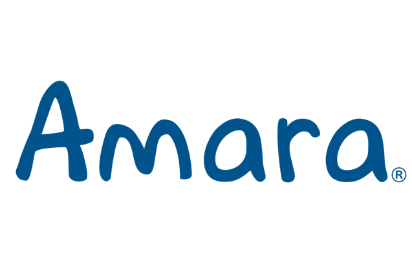
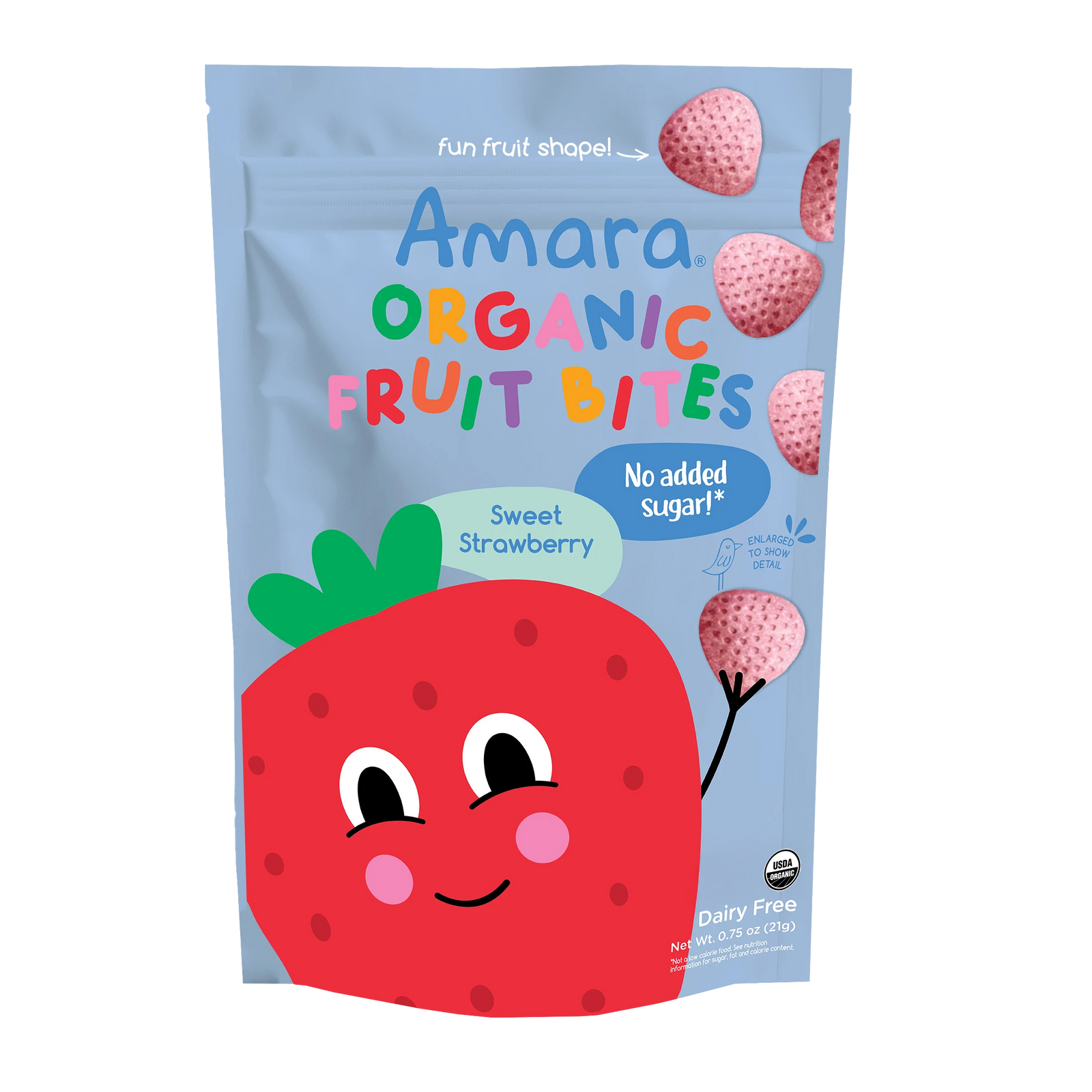




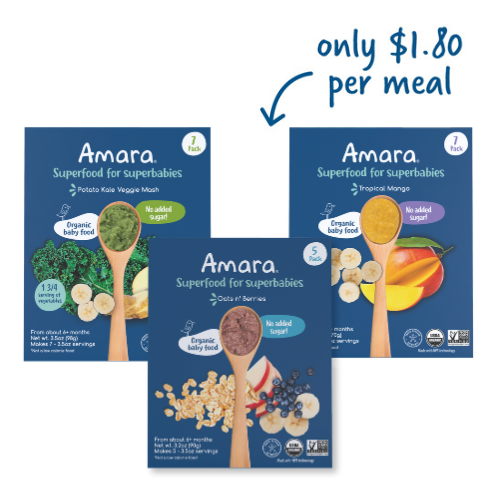
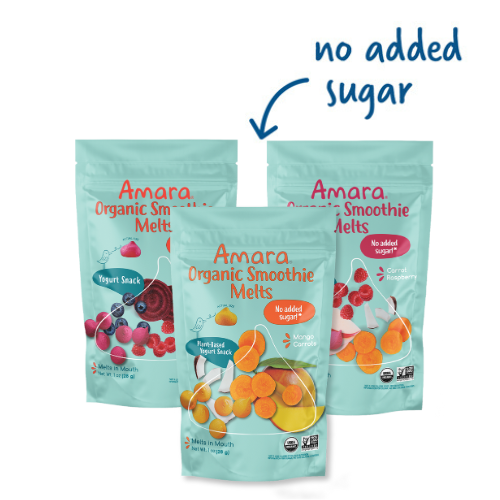
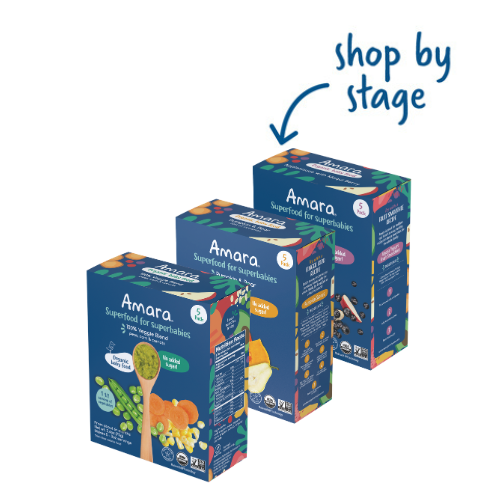
Leave A Comment